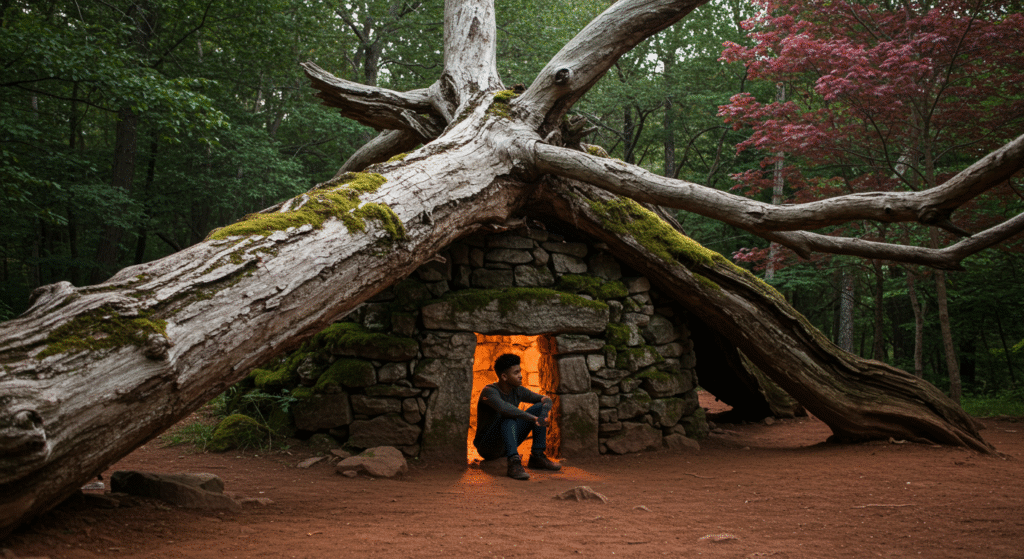Surviving in the wild demands a blend of skills, knowledge, and readiness. Here are essential principles and tips to help anyone navigate such situations successfully:
- Preparation and Mindset
- Stay Calm: Avoid panic, which can lead to poor decisions. Focus on your key survival priorities.
- Mental Resilience: Keep a positive outlook and stay flexible to adapt to changing conditions.
- Core Survival Priorities
- Shelter: Protect yourself from the elements by seeking natural shelters like caves or overhangs, or by constructing a temporary shelter using branches, leaves, and other natural materials.
- Water: Locate a clean water source. If none is nearby, collect rainwater or dig near riverbanks. Always purify water by boiling or using purification tablets whenever possible.
- Food: Learn to identify edible plants, nuts, and berries. Familiarize yourself with local flora and fauna before venturing into the wild. Use traps or fishing methods for protein if needed.
- Fire: Fire is vital for warmth, protection, cooking food, and purifying water. Gather dry wood and kindling, and use matches or a fire starter to ignite a fire.
- Navigation and Signaling
- Navigation: Learn basic navigation using a map and compass. If these tools are unavailable, use natural landmarks and the sun’s position to find your way.
- Signaling for Help: Use signals such as smoke, reflective surfaces, or SOS signs to attract rescuers. Bright colors or large shapes visible from the air are especially effective.
- First Aid and Health
- Basic First Aid: Know how to treat common injuries like cuts, burns, and sprains. Carry a first aid kit if possible.
- Avoid Hazards: Stay aware of local wildlife, poisonous plants, and environmental risks such as extreme weather.
- Learning and Practice
- Survival Skills Training: Take courses or read books on wilderness survival. Practice these skills in controlled environments before you need them.
- Local Knowledge: Understand the climate, geography, and wildlife of the area where you’ll be.
- Emergency Gear
- Essential Equipment: When planning to spend time in the wild, bring a multi-tool, whistle, fire-starting kit, water purification system, and a map.
Conclusion
Successful wilderness survival hinges on preparation, knowledge, and practiced skills. The more you learn and rehearse, the greater your chances of not only surviving but thriving in the wild.



